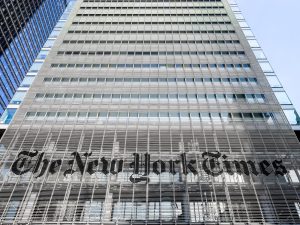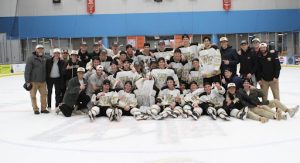SARS situates police violence globally
Resistance against Special Anti-Robbery Squad in Nigeria reframes police discourse
October 29, 2020
In the past couple of months, people all around the country and world have been protesting for the #BlackLivesMatter movement. Systematic racism, oppression and bigotry are all reasons why Black people around the country are demanding change. However, one of the core reasons why Black people are demanding equality is due to police brutality. Police officers all around the country murder, exploit, threaten and treat Black people as unequals to white people.
On June 17, 2015, Dylann Roof, an American white supremacist, shot and killed nine African Americans and left three victims injured. Roof walked into The Emanuel African Methodist Episcopal Church, one of the oldest Black churches in the United States and a center of organizing events related to the civil rights movement. Shortly after Roof was arrested, he was taken to Burger King. Let that sink in. A white supremacist murdered nine Black people and was taken to Burger King because he complained of being hungry. This is a privilege that would never be given to a Black person if the tables turned. Actually, Black people in America can be shot, killed and harassed for just being Black and waking down the street.
For months now, people have been demanding that police forces be abolished or reformed. Some people argue that the concept of abolishing police forces, and replacing them with other qualified officials is radical. When you think about abolishing the police though, you have to understand the meaning behind the movement. It isn’t that all activists are calling for every police officer to necessarily be removed, but rather that there needs to be steps taken to reform and abolish racist stereotypes and notions of Black Americans so that Black Americans are not disproportionately targeted. It goes deeper than saying that policing should not exist, but rather we need to have larger conversations about why the police force in America is able to assume the role of oppressors by exercising their job duties in unjust and corrupt ways in specific neighborhoods.
The #ENDSARS movement may be specific to Nigeria, but … social inequality is not only present in Nigeria.”
In 2017 the #ENDSARS movement started in Nigeria, and in the last couple of months, Nigerians all around the world have been protesting against police brutality in Nigeria. The Special Anti Robbery Squad was created by the Nigerian government in 1992 to deal with violent criminals. They are given power and control that no one else in the country has. They are above the law and have sent people to prison for having an iPhone, for driving a nice car they have opened fire to peaceful protestors.
Similar to the Black Lives Matter Movement, the #ENDSARS movement is not only about police brutality, but also inequalities in healthcare systems, education, systematic corruption, electoral fraud and many more social inequalities in Nigeria that can be directed towards class. Although in the United States most of the inequalities we see in regards to the Black Lives Matter movement can be associated with race, in Nigeria governmental corruption and class and the main issues that certain communities are facing.
These are all issues that have been building up in Nigeria are just like those of the United States — police brutality was only a tipping point, rather than a cause of the start of this movement. Further, these two movements are similar, but they are not the same. It is important to acknowledge the United States’ history with slavery and African countries’ history with colonization when we have these conversations.
The #ENDSARS movement may be specific to Nigeria, but corruption and enormous social inequality is not only present in Nigeria. Colonization left many African countries in a hole where they are now dependent on Western countries for resources, because Western countries were oftentimes exporting violence and at the same time stealing resources away from beautiful African countries. Whether it’s called #ENDSARS, #BLM or #EndWhitesupremacy, the everlasting effects of colonialism are still impacting communities today and it is our responsibility as the younger generation to speak up and speak out about the inhumane treatment and violence exported domestically but also internationally in African countries.













